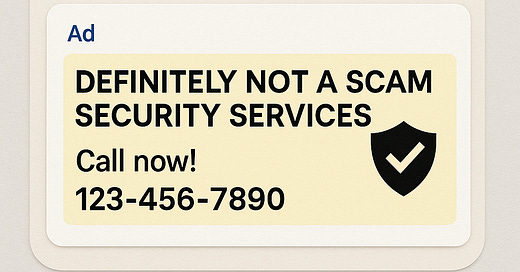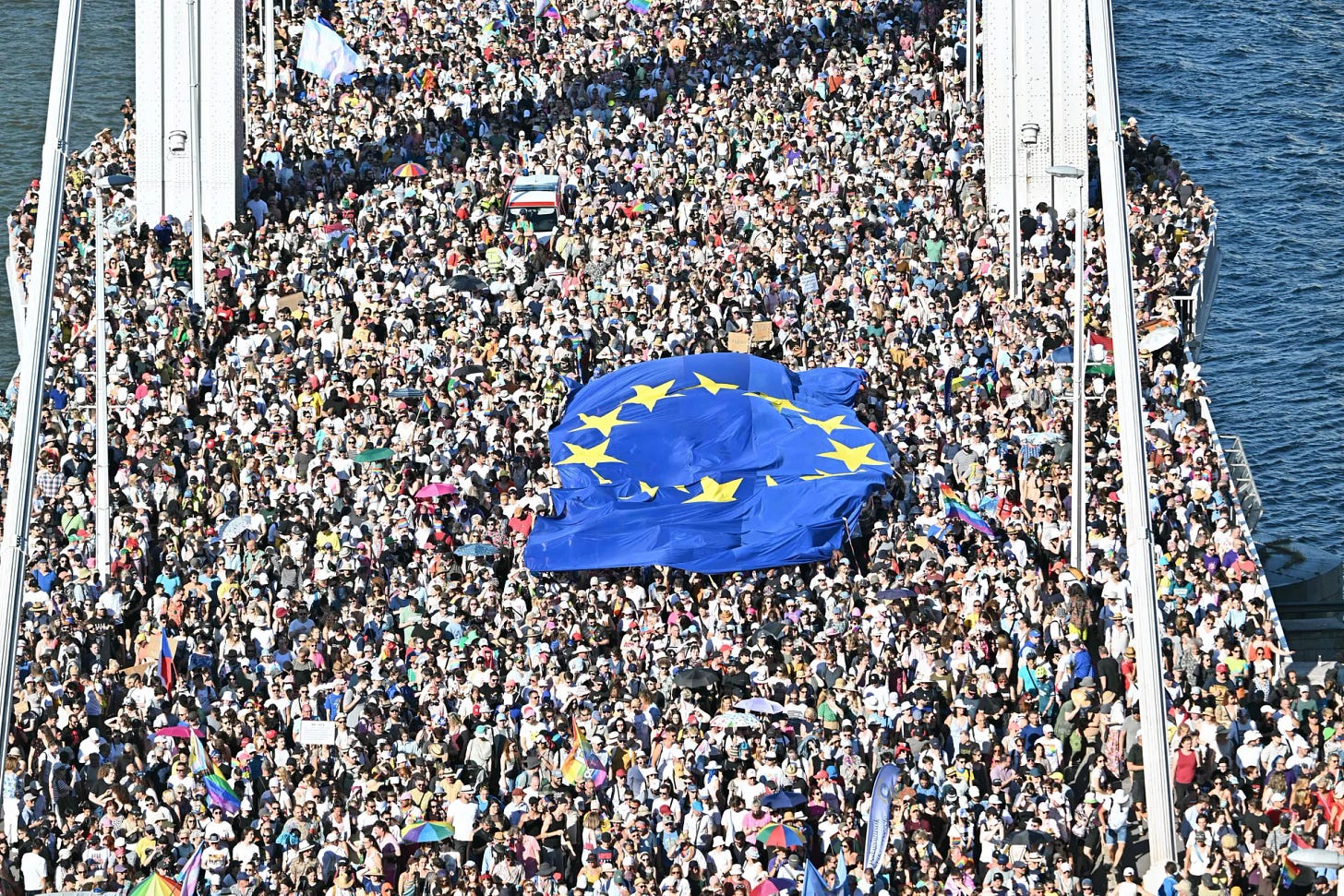I live in Amsterdam, the biggest city in The Netherlands. This means normal city problems sometimes arise - trash, bicycle thefts, noise, suspicious people, etc. To me this is just part of the game of living in a city. I have several neighbors in our shared WhatsApp group who feel differently, however.
Every time, and I mean EVERY time, there is the slightest of incidents the chat explodes in a panic.
It’s annoying.
And the only thing that could possibly make it more annoying would be being bombarded with ads at the same time, which is now a possibility.
Earlier this month Meta announced ads were coming to WhatsApp. For now the ads will only appear in the updates section of the platform, but my guess is that this is just the beginning. WhatsApp has a user base of 3 billion monthly active users, and the opportunity for Meta to finally monetize an application it paid €19B for is simply too good to pass up.
Meta is an advertising juggernaut. In 2024 it generated $165B in revenue, with almost all of that coming from ads. In Q4 2024 alone they generated an average of $14.25 per person, and saw their average price per ad go up 14% (16% in Europe). Most forecasts show there is no sign of this slowing down either. Both Meta and their investors know that if they can monetize WhatsApp users the way they’ve done on Facebook and Instagram they could add an insane amount of extra revenue.
On one hand, I can’t blame Meta for doing this. They are in the business of selling users to hungry advertisers, investors would love to see their incredible numbers go even higher, and they have an untapped audience of 3 billion people whose attention is just waiting to be fracked. On the other hand, there’s a number of issues with trying to unleash ads on WhatsApp, especially when it comes to privacy.
This would likely explain why Europeans won’t see ads on WhatsApp until 2026 at the earliest.
Messages on WhatsApp are end-to-end encrypted, which means that only the sender and receiver can open them. Even Meta, who runs the platform, can’t see the content of your messages. In order to properly provide targeted advertising WhatsApp messages would either have to lose their encryption or Meta would have to use other data points as ways of identifying you. This could be done through requiring a Facebook, Instagram, or Threads account, forcing live location sharing, tracking you outside of the application, more detailed tracking on all non-messaging data, etc.
To make matters worse, once the ads start rolling on WhatsApp the incentive structure around product development shifts significantly. The original founders of WhatsApp were extremely opposed to ads and initially focused on simply charging users $1 USD a year (if you think that’s too small, just remember that there are currently 3 billion users). Under this framework the focus of product development, and the marketing that drives its adoption, is on utility. In a utility focused framework everyone involved in each and every feature has to ask themselves, “how is this helping the person using the tool?”
Once you switch to an ad model that question transforms. It is no longer about helping people or solving a problem, it’s about maximizing engagement. The longer someone is on the platform, the more money Meta makes. I personally already experience WhatsApp as an annoying distraction (group chats for work are the fucking worst), and with the platform’s shift to an advertising model I expect my irritation to increase proportionally to Meta’s rising ad revenue.
Fortunately, there are alternatives, but most of them bring their own problems.
Classic SMS is always an option, but lacks end-to-end encryption. iMessage is limited to Apple products (with some janky Android workarounds). Telegram seems cool at first, but doesn’t have encryption enabled by default and its founder doesn’t seem too concerned with child sex abuse material (CSAM). There are also some homegrown European options like Threema and Ginlo but they are relative unknowns and their adoption is quite low.
The best alternative, and probably the best messaging app in general, is Signal. The app’s encryption is viewed as best in class (even WhatsApp uses the Signal protocol), the software is open source (reducing vulnerability to a buy-out that effectively shuts it down), and the organization is a registered non-profit with a deep commitment to privacy.
This isn’t to say that with Signal there aren’t risks of leaks from things like say, profoundly stupid people sharing military attack plans by accidentally adding a journalist to a group chat. There are. But no app can cure incompetence.
Human foibles aside, Signal is the best messaging option out there. However, being the best isn’t enough. Signal has only 70-100 million monthly active users compared to the 3 billion on WhatsApp, and it has an uphill battle to climb if adoption is going to take off.
My view is that annoying ads and privacy concerns won’t be enough to drive people to try Signal or something else. Massive shifts in tech adoption tend to come from substantially better technology (the iPhone), meth-level addictive design (TikTok), or hijacking a built-in install base (Internet Explorer back in the day). If Signal is going to really grow into the leading option for private messaging it will need to add product features that drive growth or introduce some better marketing strategies to draw in users.
An interesting hypothetical here would be a partnership with Apple. Apple is obsessed with respecting privacy (outside of China) and is not a big fan of Meta. I don’t know if it would ever happen, but if it did I could imagine the shift in adoption would be pretty significant.
The angry group chats over at Meta about that would be one of the few I’d actually enjoy being a part of.
Pop Culture Pick of the Week
It’s not a pop culture thing at all, but as we close out Pride Month I thought it a worthy finisher.
The Hungarian autocrat Victor Orban has officially banned Budapest Pride and passed a law where participating in the event would result in a fine of €500. In response to that illegal and homophobic move scores of Europeans said “fuck that shit” and flew to Hungary to celebrate in solidarity. As alarming as Hungary’s fall from democracy has been, the bravery of so many Hungarians and the support of their fellow Europeans has been beautiful and inspiring.
I hope we can all learn from this and share more moments of democratic solidarity with one another.
Thanks for reading and see you next time.





